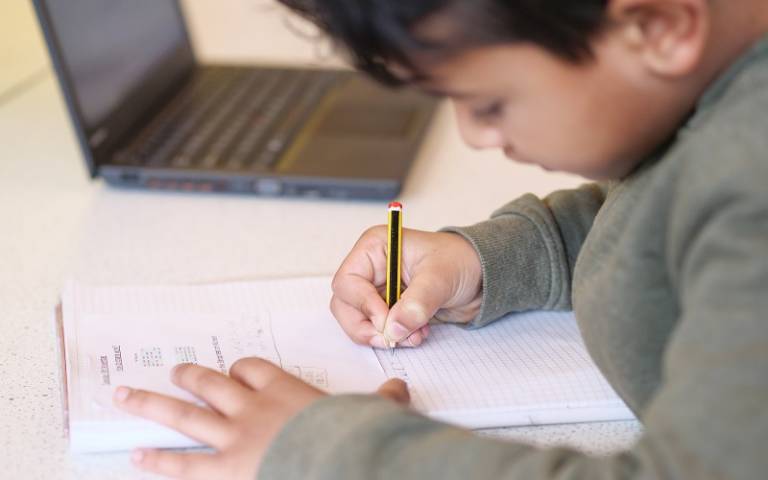Learning loss literature not a good guide to schools reopening following lockdown
7 September 2021
Teachers and policymakers should focus on learning disruption research when returning to school following the COVID-19 pandemic rather than learning loss research, according to a new paper by UCL Institute of Education (IOE) academics.

Conversations about the impact of COVID-19 on learning following national lockdowns have led researchers and policymakers to review the literature on learning loss which estimates the effect of summer holidays on pupils’ academic achievement.
However, Dr Sinead Harmey and Professor Gemma Moss (Department of Learning and Leadership) argue that research on learning disruption following extended and unplanned periods of school closure, such as SARs or weather-related events, is more directly relevant for schools dealing with the COVID-19 pandemic. The researchers argue there are many limitations to learning loss research, and that planned school closures for summer holidays are very different from the disruption that Covid-19 caused.
They note: “When schools close for the summer holidays, closure is typically characterised by a ‘wrapping up’ of learning, preparation for transitions and celebration. Teachers prepare children for transitions to new year groups. When schools reopen, teachers and children have had a break and teachers are prepared to welcome children back. This minimises any ‘back to school’ trepidation. This is not the same as the closures and subsequent reopening due to Covid-19.”
Instead, they argue that “unplanned school closures and reopening due to Covid-19 were more like closures due to natural disasters (such as Hurricane Katrina) or pandemics. These learning disruptions, in contrast to planned school closures, are characterised by disruption to daily life, increased likelihood of illness, economic stress, anxiety about returning to school, and a need for a period of recovery.”
The researchers undertook a rapid evidence assessment of research literature, screening 307 studies and reviewing 15. They synthesised three key recommendations:
- School leaders are pivotal in leading a successful return to school – the literature identifies the importance of school leaders’ local knowledge as they understand the effect of Covid-19 on the local community including variations due to levels of poverty.
- The curriculum needs to be responsive to children’s needs – when schools reopen after closing due to unplanned events like a pandemic, children need a change in the pace and content of the curriculum. Providing more time and flexibility in curriculum delivery is essential, rather than focusing on testing, inspection and catch-up.
- Schools are essential in supporting the mental health of students – teachers and children returning to school after unprecedented events may have a need for mental health support. All of this needs to be factored into developing appropriate professional support for staff and pupils.
Dr Harmey said: “Perhaps the overriding conclusion to be drawn is that a major period of disruption is best helped by recognising the time it may take to recover well. Recognising this may put the school system in a better place to deal with whatever happens next, including accommodating further periods of disruption, rather than rushing pell-mell to catch children up with where they would have been if none of this had ever happened.”
Links
- Read the paper: 'Learning disruption or learning loss: using evidence from unplanned closures to inform returning to school after COVID-19'
- View Dr Sinead Harmey's research profile
- View Professor Gemma Moss's research profile
- International Literacy Centre
- COVID-19 research at UCL Institute of Education
Image
Phil Meech for UCL Institute of Education
 Close
Close

